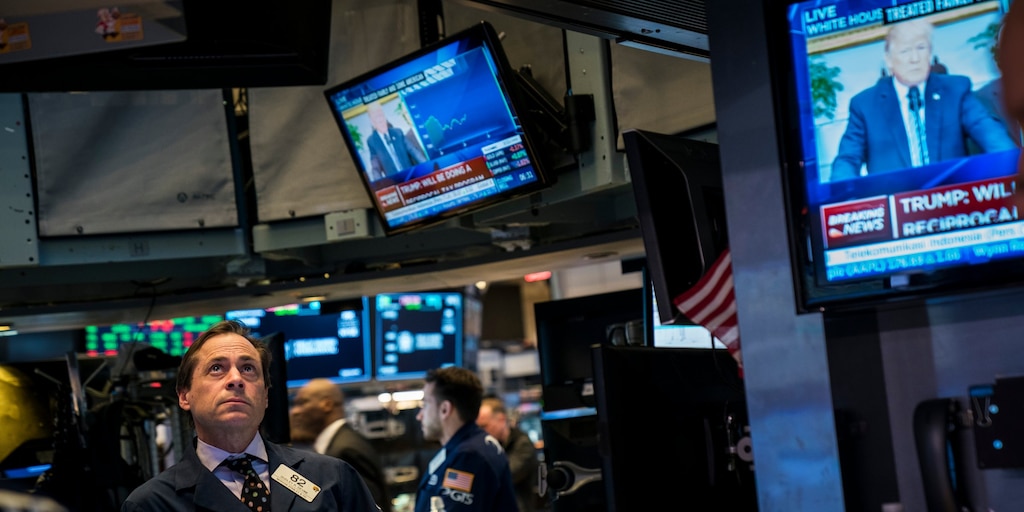 Drew Angerer/Getty Images
Drew Angerer/Getty Images
- Last week Vanity Fair published an article claiming that mysterious traders made roughly $3.5 billion off stock bets timed to Trump’s trade war comments.
- It essentially implied that certain traders were frontrunning twists and turns in the trade war, placing wagers of hundreds of thousands of “e-mini” contracts.
- The article cited an unnamed Chicago Mercantile Exchange trader, who said that “there is definite hanky-panky going on.”
- Now, CME Group CEO Terry Duffy has hit out saying the article was “nonsensical” and it “should have been written in crayon.”
- View Business Insider’s homepage for more stories.
CME Group CEO Terry Duffy has hit out at the Vanity Fair article last week that claimed mystery traders made billions off stock bets time to Trump’s trade war comment.
The article in question — titled “‘There is definite hank-panky going on’: The fantastically profitable mystery of the Trump chaos trades” and written by William D. Cohan — claimed certain traders were making millions if not billions on trades times to events around the trade war.
It implied they either knew or predicted that the trade war would cause sharp market fluctutations one way or another, which ended up making them huge piles of cash from trading “e-minis” — or electronic futures contracts traded on the S&P 500.
“It’s the most irresponsible thing I’ve ever seen in my entire life,” Duffy said in an interview with Bloomberg on Thursday. “Listen, I’m not sticking up for anybody. But the way they calculated that was so nonsensical.”
He added: “The article should’ve been written in crayon.”
The article used examples including an occasion where someone made $1.5 billion after markets moved on the news that Trump said talks with China were going well on August 23.
It even cited a anonymous “longtime Chicago Mercantile Exchange trader” who said that “there is definite hanky-panky going on, to the world’s financial markets’ detriment.”
Duffy didn’t rule out that the White House could be leaking market-moving information, according to Bloomberg, but just that Vanity Fair didn’t prove it.
The article prompted 14 Democrat lawmakers to push for authorities to investigate the allegations made by the article.
Meanwhile, CME said in a statement last week that the claims in the Vanity Fair article were “the allegations about the trading activity are patently false,” and that “these transactions were entered into by a significant number of diverse market participants.”
Bloomberg spoke to Cohan, the author of the original piece. “When you speak with people who have been trading 40 or 50 years, people trading e-minis as long as they’ve been around, and it goes against their gut instinct, you get the numbers, you see the timing more or less lines up, you write a story,” Cohan said.
“I’m sorry it’s upset Mr. CME and he’s calling me a child, but you know we’ve got senators now who are calling for an investigation. Let’s let regulators do their job,” Cohan added.













